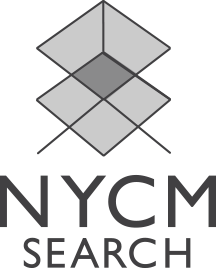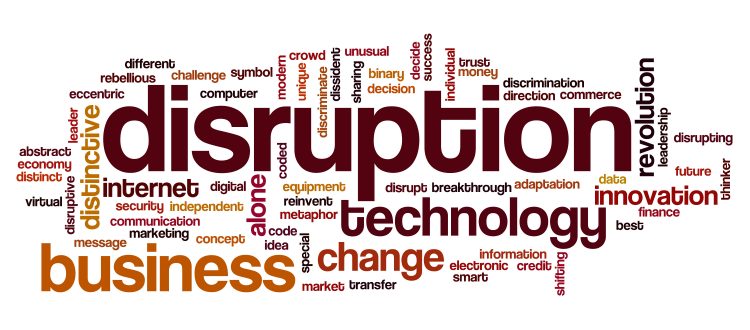Benefits of a Disruptive Employee
Job Details
Job ID:Title:Benefits of a Disruptive Employee
Location:,
Post Date:09/07/2017
Job Description
Benefits of a Disruptive Employee
BENEFITS OF A DISRUPTIVE EMPLOYEE
If we keep doing things the way things have always been done….will we be minimizing risk, ensuring longevity, or will we be sealing our own fate? If we do not change because “if it ain’t broke, don’t fix it’ is our mantra, will our companies never break, or will they eventually be smashed by competition and innovation? And if we only bring in compliant, soldier-like employees who follow orders, are we creating an environment of stability or are we ensuring stagnation?
Disruptive. That has been the terminology used over the last decade to describe new technologies, new apps, and new services that challenge existing frameworks by offering new efficiencies. These institutions that are disrupted often become deeply impacted (look at what uber did to the price of a NYC taxi medallion). Current and future disrupters include 3D printing, Smart Infrastructure, and self-driving vehicles. Disruption is the word now used to describe innovation, improvement, …evolution.
I have to admit, when I first heard the word Disruptive, I thought of my lovely children. The term has a negative connotation, and I don’t love it. But then that thought allowed me to think on a micro level about disruption; I began thinking about it as an HR professional. Yes, there are these big sweeping disruptive concepts, technologies, products and businesses… but can one human be disruptive within a company in a way that benefits that company, and maybe even that industry? Maybe it depends on the company. Maybe it depends on the industry?
Typically the companies I support are seeking ‘soldiers’, rule followers, those who are steady, reliable, low liability low risk assets. There are some companies with whom I work that typically seek the entrepreneurs, the sharp, forward thinking, never stopping kind of ‘workers’. But even those requests are a step short of seeking out disruption. Really, some companies don’t need disruption – they need creativity within the context of cooperation.
Companies that could really benefit from disruption are those companies that have not changed their approach in a decade or more. A company whose IT systems are archaic, whose procurement and supply chain competence is non-existent, whose processes and procedures are improvised and ‘custom made’ varying greatly depending on the employee – these are the kinds of companies that stand to benefit. Disruption is most valuable when a company’s trajectory of growth gives way to complacency, followed by plateaued revenue and eventual losses.
These conditions are traditionally found within groups like government agencies, legacy non-profits, and bureaucracies. There are plenty of private, for-profit companies however, even within the technology, engineering and design fields that fit this description. And let’s face it, in my two main markets, Construction and Real Estate Development, new ideas have come, but they haven’t been mind blowing. Construction companies were probably among the last to get emails and websites. If ever there was ever an old-school industry that resists change, it would be construction and real estate…though I sense that is beginning to change.
Ideally, a disruptive employee would be brought on to streamline processes and procedures, eliminate unneeded redundancies, lighten paperwork, utilize data, implement new structures, or even develop completely new business models. And ideally a disruptive employee could do this with minimal pain, but that’s not really in the nature of the word, is it? Disruption will usually mean people lose their jobs, at least the people who resist change. Disruption will usually mean that things become more hectic and challenging before they become better. Externally, disruption may even mean you put other companies out of business, or nearly out of business. Evidently there are still a handful of
Historically, humanity has continued to evolve. Humanity continues to invent. Humanity continues to disrupt. And while anyone who watches cable news would likely disagree with the sentiment that our world is ‘improving’, if you look closely at genetics, biology, cloud technology, data and energy storage, energy creation, new charities, water technologies, and even general services, we are a species that appears to want to make the world a better place.
Perhaps your company could be a better place. Maybe six months of pain are worth rewriting your company’s legacy, and your own legacy. And perhaps we should look for more disruptive employees who may turn our company upside down, shake it up, and then bring it back to port where suddenly new passengers with similar forward thinking mindsets will want to set sail with you. We should encourage the rule followers to learn to question existing systems, challenge them, and even disrupt them.
You may have experienced personal disruption by getting married, or having kids – and if so you likely know that such disruptions can and will turn your world upside down, but they often require that you evolve as a human being as well. And so then you know the value of true disruption. And if you have not yet experienced marriage or procreation…, then you needn’t look further back than your own birth. Things were most likely pretty nice and cozy for you inside the womb. But there’s something about nature that thrusts us out into the light, naked and vulnerable, feeling pain and discomfort, only to eventually conquer those challenges, learn languages, develop relationships, invent new concepts, learn to play the violin, change the world, and put on some clothes.
If you don’t seek disruption, your competitors will. And while I may not love the word, I like the concept – and I think you should too.




